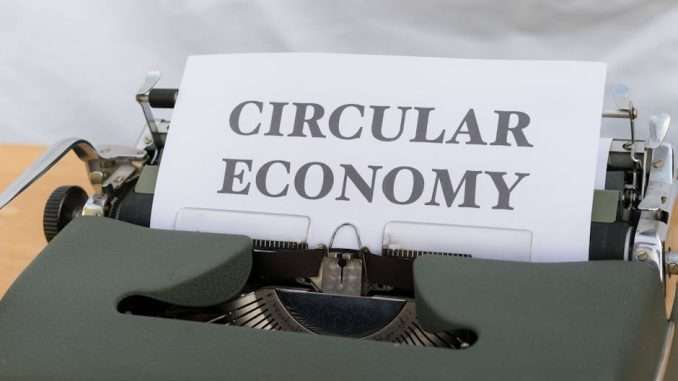
In the vanguard of sustainable development, the realms of energy and construction are charting a course toward a future where ecological stewardship becomes an achievable objective. With the urgency to mitigate climate change reaching a crescendo, these sectors, historically synonymous with significant environmental impact, are now at the forefront of the shift towards ecological preservation.
The concept of circularity, rooted in the ethos of resource conservation and reuse, is catalyzing a transformative shift within the energy industry. This evolution is particularly timely given the sector’s imperative to decrease its dependency on fossil fuels and to confront the repercussions of climate change. The circular economy presents an inspiring model, showcasing the remarkable scope for innovation to stabilize supply networks and ensure the sustainable sourcing of critical resources.
A salient instance of this transformative potential is evident in the energy sector’s approach to battery recycling. Achieving an impressive recycling rate of over 95%, the industry is moving beyond its previous unsustainable reputation. This achievement is not merely a technical feat but signifies a deeper dedication to economic, social, and environmental well-being, reinforcing energy security and diminishing the risks associated with international conflicts.
The proliferation of circular ecosystems, often propelled by innovative startups, is revolutionizing the energy landscape. These burgeoning ecosystems are not only advocating for an environmentally conscious framework but are actively redefining the industry. With a focus on renewable energy and a reduction in greenhouse gas emissions, technological advancements and entrepreneurial spirit are fostering localized supply chains that enhance economic diversification and geopolitical resilience.
In this context, nations like India, which have historically relied on traditional energy sources, are now embracing circular principles. Through concerted initiatives, these countries are striving to reduce their environmental impact while simultaneously reinforcing their energy security. The promotion of renewable energy and the advancement of grid integration are paving the way for a sustainable and self-sufficient energy future.
Concurrently, the construction industry is experiencing its own paradigm shift with the advent of CornWall, a sustainable building material derived from corn waste. This innovation is the brainchild of a collaboration between Dutch firm StoneCycling and Belgian company Circular Matters. CornWall challenges entrenched construction practices by offering an eco-friendly alternative that matches traditional building materials in both design and functionality.
CornWall panels, notable for their versatility and visual appeal, are redefining architectural standards. These panels, suitable for wall cladding and furniture, boast a production process with low CO2 emissions and function as a carbon sink. Their introduction is timely, coinciding with a global demand for revolutionary and sustainable building solutions. StoneCycling and Circular Matters are demonstrating the viability of green construction and championing the integration of a circular economy into architectural design.
Beyond its low emission production, CornWall’s ability to sequester CO2 throughout its lifecycle underscores its significant environmental benefits, directly aiding in the reduction of global warming. This property highlights the critical role that CornWall plays in the establishment of carbon reservoirs, which are vital for our planet’s well-being.
The advancements in circularity within the energy sector and the innovative inception of CornWall in the construction industry are indicative of a broader, collaborative pursuit of sustainability. While the energy sector leverages the principles of circularity to navigate uncertainties and boost resilience, the construction industry is reinventing its modalities with materials like CornWall, setting new benchmarks for ecological responsibility in architecture.
These transformative strides are integral threads in the broader fabric of global sustainability endeavors. As the energy and construction industries reinvent themselves, they are not only aligning with environmental conservation but are also leading the sustainability revolution. By adopting the principles of circularity and investing in sustainable resources, these sectors are fostering economic growth, enhancing geopolitical stability, and protecting the natural world.
The amalgamation of circularity and innovative materials such as CornWall illuminates the path to a more sustainable future. As the global community grapples with the exigencies of climate change and resource depletion, these pioneering developments demonstrate that a sustainable future is not a mere pipe dream but an attainable goal. With continued commitment and ingenuity, this vision of a greener tomorrow is increasingly within reach, propelling us toward a world where ecological and economic objectives are not only compatible but mutually reinforcing.


Be the first to comment